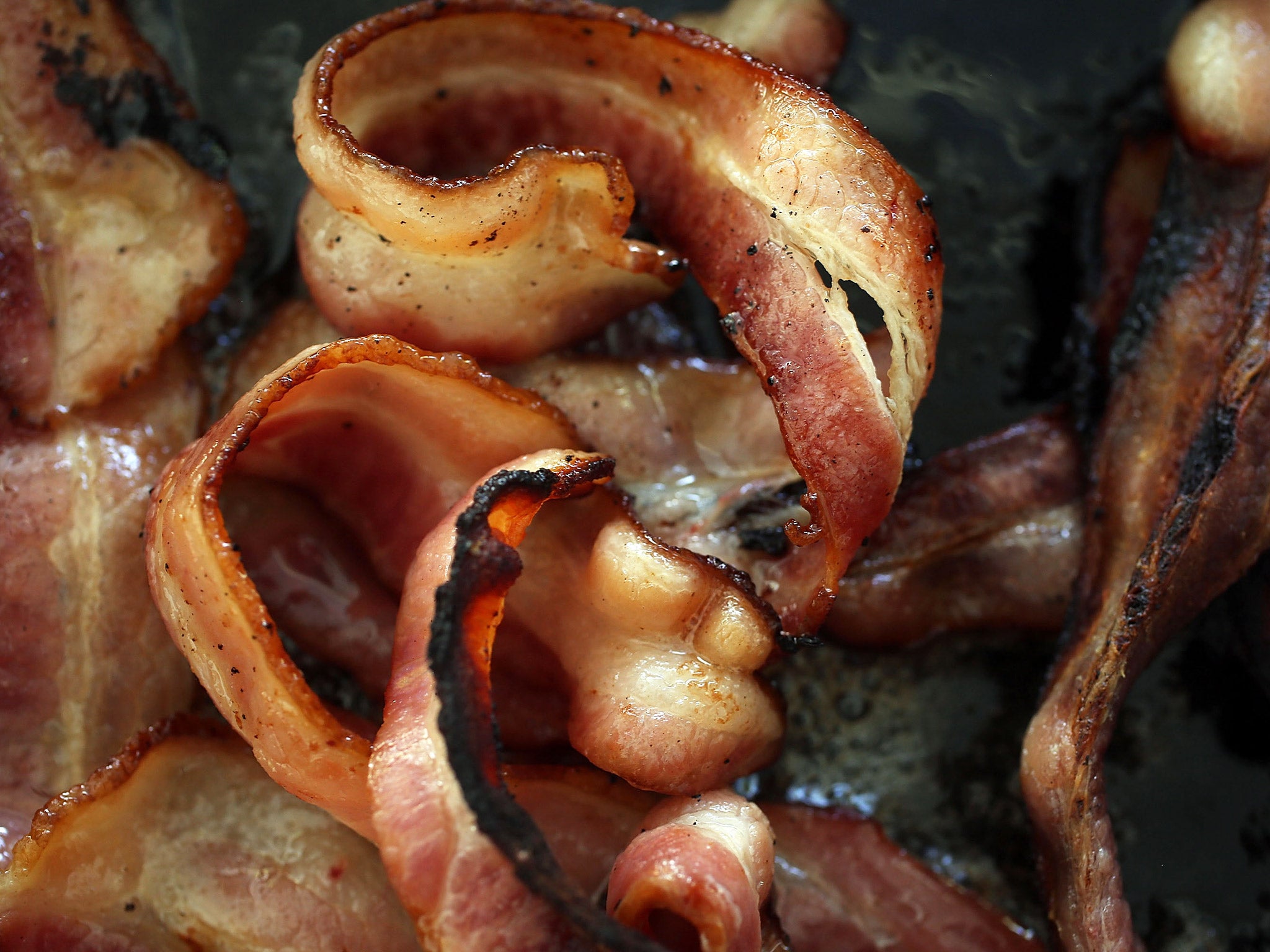High-fat diets increase risk of tumours forming in the gut, say scientists
Findings may explain the link between obesity, fatty food and cancer, scientists said

Your support helps us to tell the story
From reproductive rights to climate change to Big Tech, The Independent is on the ground when the story is developing. Whether it's investigating the financials of Elon Musk's pro-Trump PAC or producing our latest documentary, 'The A Word', which shines a light on the American women fighting for reproductive rights, we know how important it is to parse out the facts from the messaging.
At such a critical moment in US history, we need reporters on the ground. Your donation allows us to keep sending journalists to speak to both sides of the story.
The Independent is trusted by Americans across the entire political spectrum. And unlike many other quality news outlets, we choose not to lock Americans out of our reporting and analysis with paywalls. We believe quality journalism should be available to everyone, paid for by those who can afford it.
Your support makes all the difference.A high-fat diet causes changes to the lining of the intestine that increase the risk of tumours forming in the gut – which may explain the link between obesity, fatty food and cancer, scientists said.
A study on laboratory mice fed on fatty food found that they were more likely than normally-fed mice to suffer changes to the cells of the gut lining which can lead to the formation of cancerous tumours.
The findings could help to explain the changes to the body’s cells that account for the established link between fatty food and the higher-than-average rate of certain types of cancer in overweight people, the researchers said.
“The epidemiological link between a high-fat diet and colorectal cancer has been reported for many years, but the underlying mechanisms were not known,” said Semir Beyaz of Harvard Medical School, and lead author of the study published in the journal Nature.
“Our study for the first time showed the precise mechanisms of how a high-fat diet regulates intestinal stem-cell function and how this regulation contributes to tumour formation,” Mr Beyaz said.
The mice in the study were fed an exceptionally fatty diet, containing 60 per cent fat, for between 9 and 12 months – compared to a typical western diet of 20 to 40 per cent fat. The mice became up to 50 per cent heavier than normally-fed mice and developed more intestinal tumours, the study found.
The researchers found that the high-fat intake significantly increased the overall pool of intestinal stem cells – the “mother” cells that develop into the specialised tissue of the gut – as well as increasing the number of other cells that started to behave like stem cells.
It is these stem cells, and stem-like cells, that can begin to divide uncontrollably to become cancerous tumours, which appears to explain why high-fat diets increase the risk of colorectal cancers, the scientists said.
David Sabatini, professor of biology at MIT, explained: “Under a high-fat diet, these non-stem cells acquire the properties of stem cells so that when they are transformed, they become tumorigenic [tumour forming].”
Cancers develop as a result of changes to cells that cause them to divide uncontrollably. Stem cells are also able to divide continuously, but in a controlled way, so anything that converts an ordinary cell into a stem-like cell has the potential for creating tumours, the researchers said.
“Not only does the high-fat diet change the biology of stem cells, it also changes the biology of non-stem-cell populations, which collectively leads to an increase in tumour formation,” said Omer Yilmaz of the Massachusetts Institute of Technology in Cambridge, Massachusetts, a co-author of the study.
“We wanted to understand how a long-term, high-fat diet influences the biology of stem cells, and how such diet-induced changes that occur in stem cells impact tumour initiation in the intestine,” Dr Yilmaz said.
When the intestinal cells of the overweight mice fed a high-fat diet were removed and grown in a laboratory dish, they gave rise to “mini-intestines” much more readily that similar cells taken from ordinary mice.
Furthermore, the “progenitor” cells, which are derived by the division of stem cells, tend to revert back to a stem-like condition – they survived for longer and were also able to give rise to mini-intestines.
“This is really important because it’s known that stem cells are often the cells of the intestine that acquire the mutations that go on to give rise to tumours,” Dr Yilmaz said.
“Not only do you have more of the traditional stem cells on a high-fat diet, but now you have non-stem-cell populations that have the ability to acquire mutations that give rise to tumours,” he said.
Join our commenting forum
Join thought-provoking conversations, follow other Independent readers and see their replies
Comments